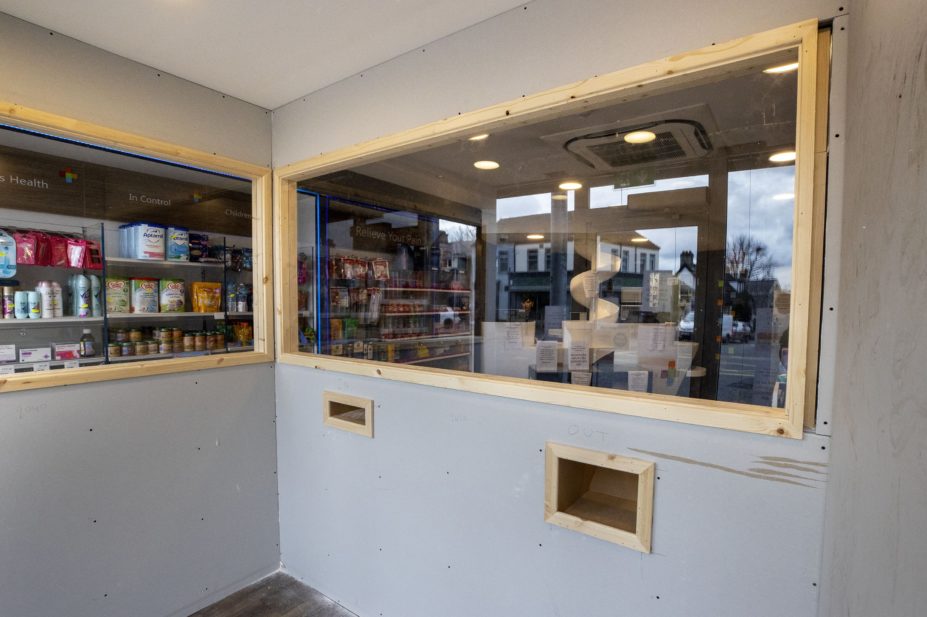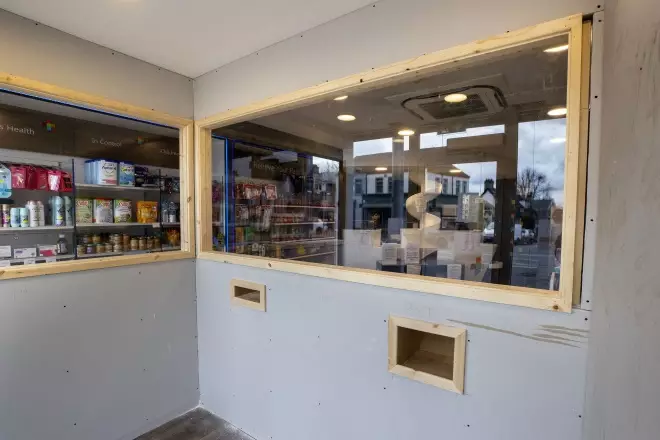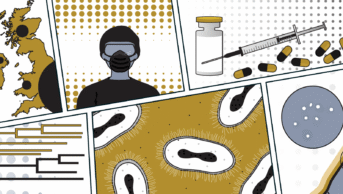
Liam McBurney/PA Wire/PA Images
Open access article
The Royal Pharmaceutical Society has made this article free to access in order to help healthcare professionals stay informed about an issue of national importance.
To learn more about coronavirus, please visit: https://www.rpharms.com/resources/pharmacy-guides/wuhan-novel-coronavirus

Source: Liam McBurney/PA Wire/PA Images
The pandemic has meant pharmacies across the UK have had increased operational costs, from increased dispensing to the cost of putting up protective screens and providing protective equipment to staff
Emergency COVID-19 funding for community pharmacies may not be enough to prevent closures, pharmacy bodies have said, after the government promised £300m in advance, but not extra, payments for pharmacies.
Pharmacies were told that the sector will receive a £200m advanced payment on or shortly after 1 April 2020, with a further £100m expected at the end of month or in early May 2020. But announcing the funding in a statement on its website, the Pharmaceutical Services Negotiating Committee said the payments totalling £300m would need to be paid back at a later date.
Malcolm Harrison, chief executive of the Company Chemists’ Association, said he was “disappointed” with the level of funding, “and the fact that pharmacies will ultimately have to pay it back,” adding that the initial £200m payment “will only just cover half of the estimated uplift in prescription items seen [in April 2020]”.
“In addition to the increased cost of purchasing medicines, pharmacies are having to pay for additional staff and overtime, additional cleaning and guarding, as well as providing protective equipment — such as screens and visors — to protect their teams, so that they can stay open for the public,” he said.
“We have grave concerns that pharmacy businesses, large and small, will not be able to continue to cope in this unprecedented situation without adequate additional support and may be forced to close permanently.”
Claire Anderson, chair of Royal Pharmaceutical Society England Pharmacy Board, said the announcement “is a welcome step … but should have come from new money”.
“With rising costs, this will not yet be enough to support those pharmacy teams working hard on the frontline during the COVID-19 pandemic,” she said.
“As we await further details on the proposed medicines delivery service, we must also see fair funding in the longer-term to help pharmacies keep their doors open to the public.”
Local pharmaceutical committee (LPC) leaders have also suggested the funding is insufficient.
Nick Hunter, chief officer of Nottinghamshire, Rotherham and Doncaster LPCs, told The Pharmaceutical Journal that although the advanced payments are “very welcome and essential to keep the sector running” during the pandemic, they are “a sticking plaster” with further negotiations needed.
Raj Matharu, chair of Pharmacy London — a representative body for London’s LPCs — said the lack of new funding will “[cause] pain later on”.
NHS England and NHS Improvement “do not value the fantastic response from the community pharmacy sector,” he said, adding that community pharmacy is “the only healthcare profession out there in the community still seeing people and patients face to face”.
“[We are], literally, putting our mental and physical health on the line and we can’t attract new funding after that. What else do we have to do?” he said.
Meanwhile, pharmacies in Scotland have also been promised advanced payments to help manage cash flow issues, although details have yet to be finalised.
Matt Barclay, director of operations at Community Pharmacy Scotland (CPS), said in a video update on 31 March 2020 that an agreement with the Scottish government on advance payments is “to be made at the end of April [2020]”.
“These will be three times the value of the net amount paid at the end of December 2019,” he said, and added that the CPS was “still working with Scottish government on new monies and how that could happen”.
Keith Ridge, chief pharmaceutical officer for England, also announced, on 31 March 2020, that pharmacies will be given £300 to pay for screens or other “physical barriers” to be installed to maintain social distancing in pharmacies.
Jawad Merali, pharmacist at Fairview Pharmacy in Edgware, told The Pharmaceutical Journal that putting up a screen at his pharmacy had “made a big difference” to staff morale, but that it cost £1,500 to install at short notice.
“There will be an equivalent, probably three quarters of the cost [of installation], to take it away,” he added, as it required drilling to the floor.
The advance payments come as some community pharmacies in England are expected to receive an uplift in their transitional payments from 1 April 2020, depending on their dispensing volume.
Under the agreed dispensing volume bands, pharmacies that dispense between 2,501 and 5,000 items will now receive £1,168, compared with £700 in 2019/2020.
Pharmacies dispensing between 5,001 and 12,500 will get £1,475, while those dispensing between 12,501 and 19,167 items will receive £1,598 monthly. Previously all pharmacies dispensing between 5,001 and 19,167 received £780.
Lastly, those dispensing more than 19,168 items will get £1,660 each month — nearly twice as much as the £833 monthly payment they received in 2019/2020.
You may also be interested in

Everything you need to know about mpox

Norovirus and strategies for infection control
